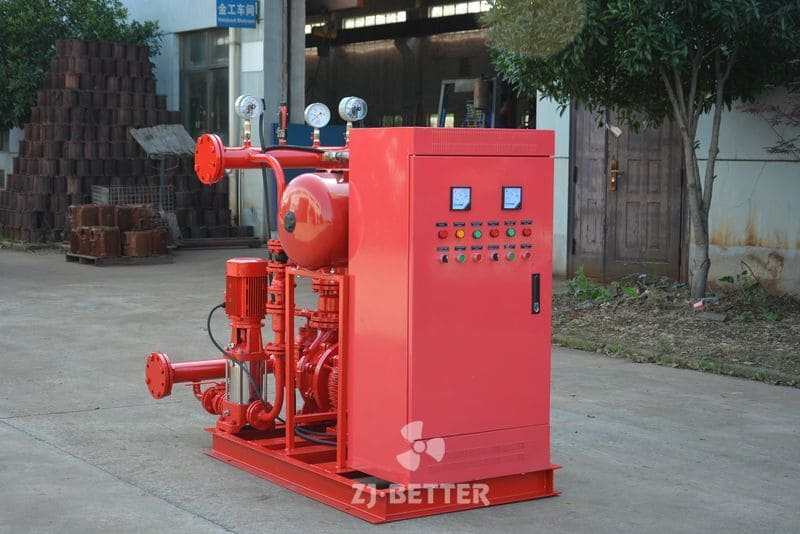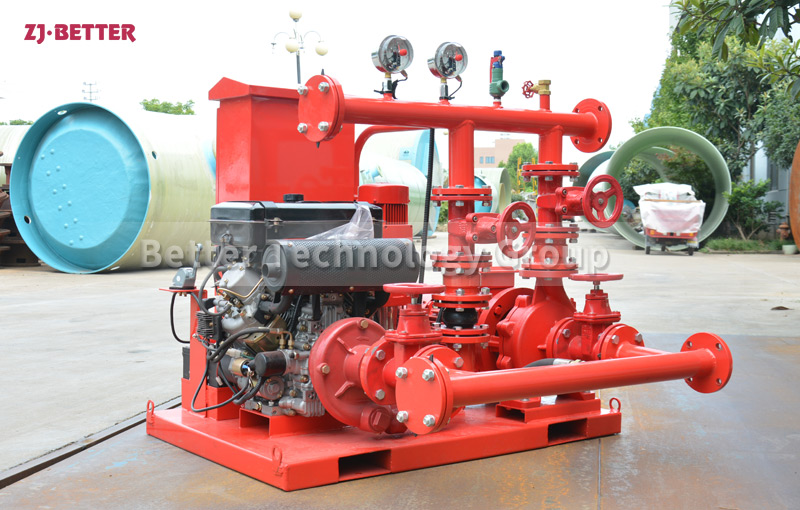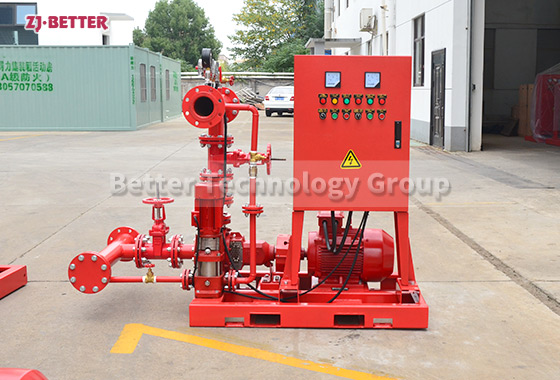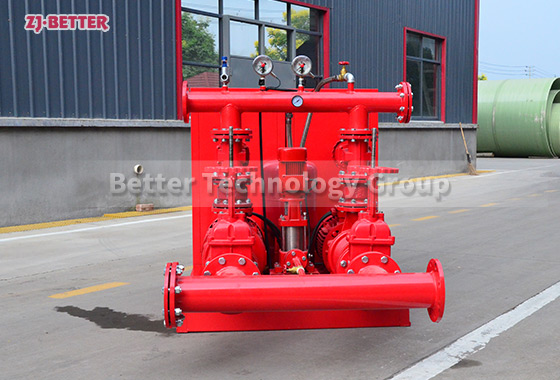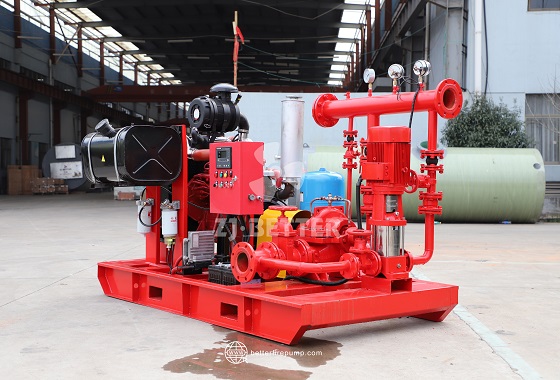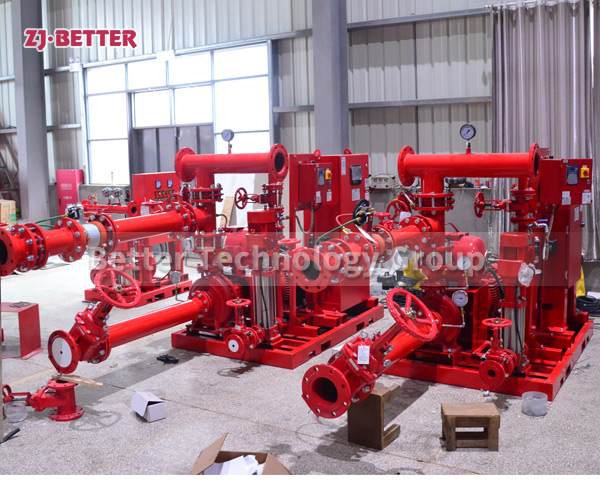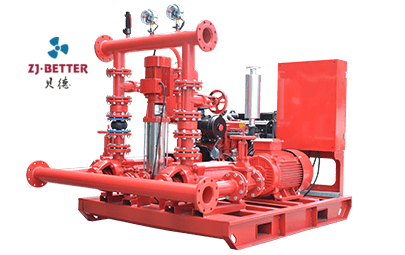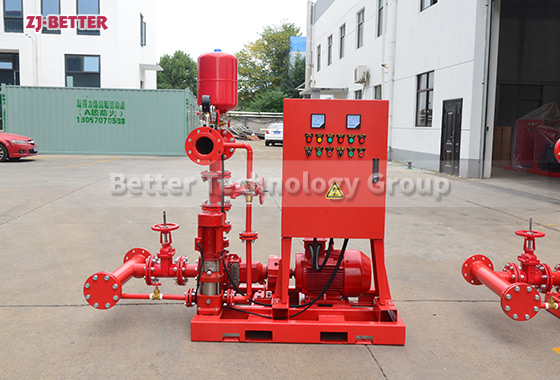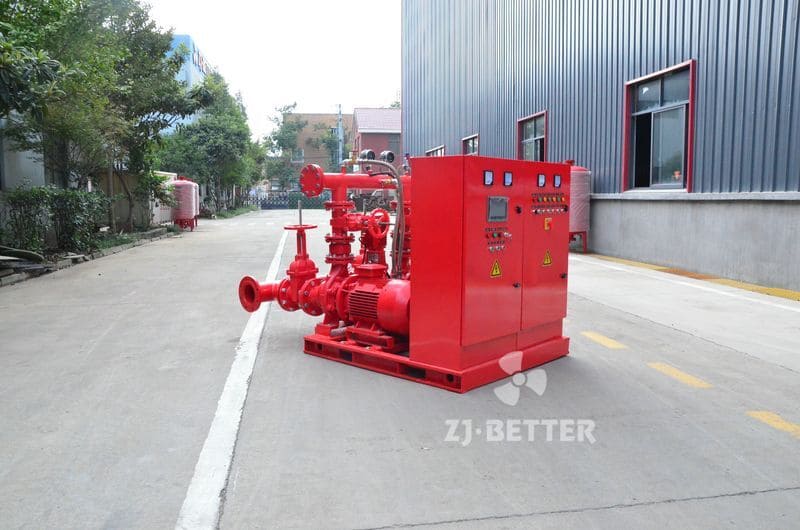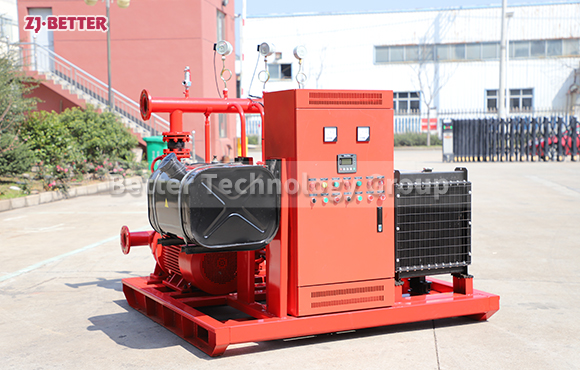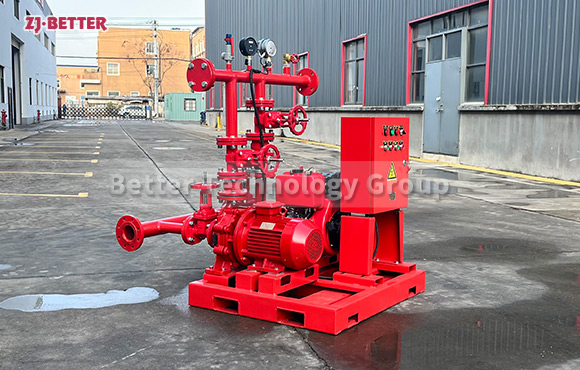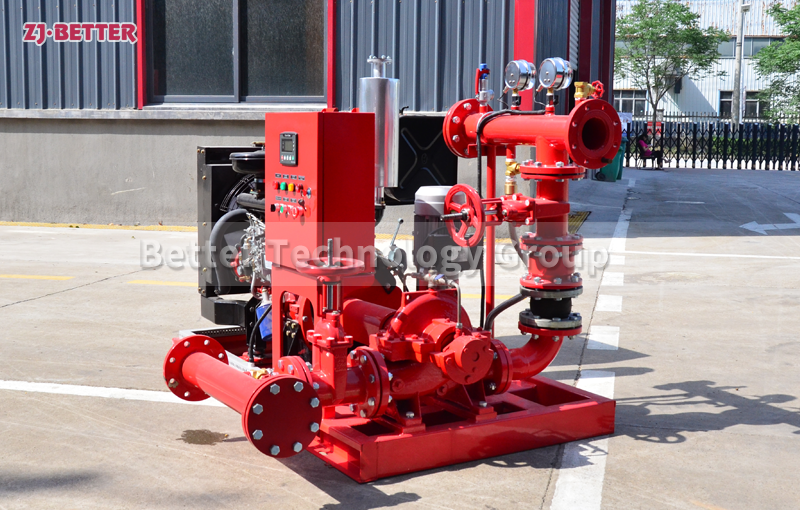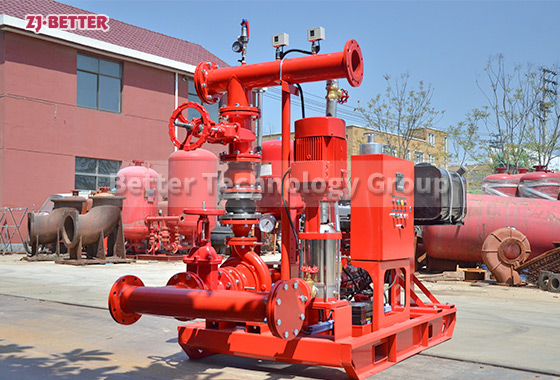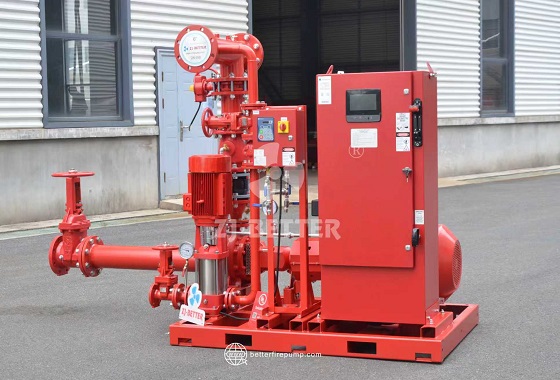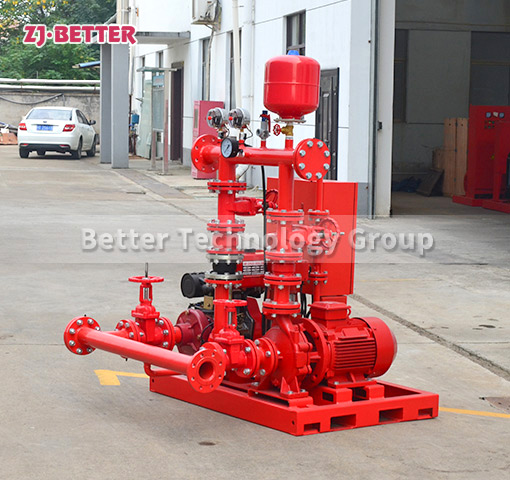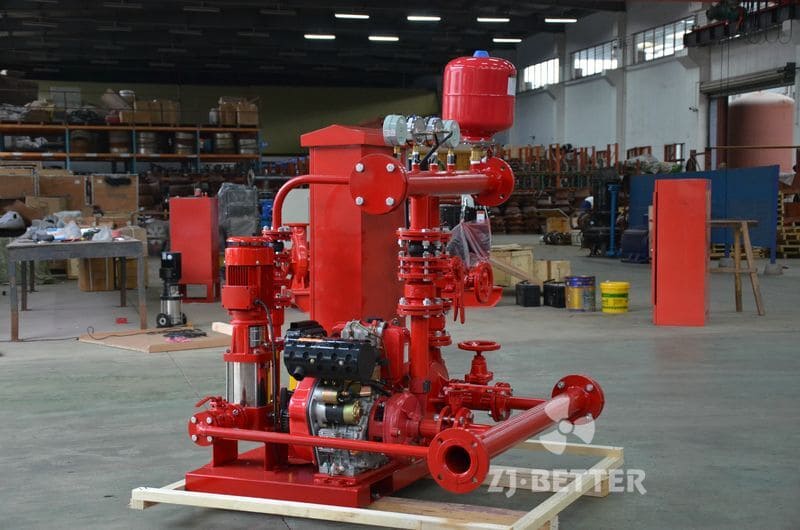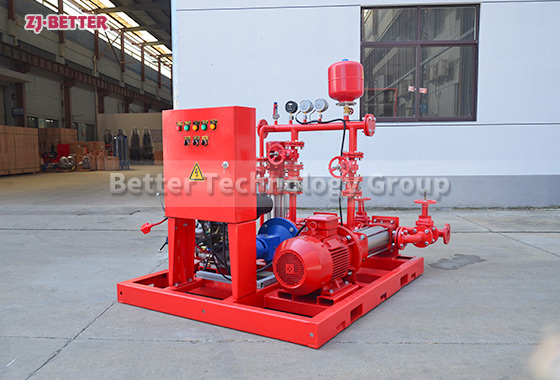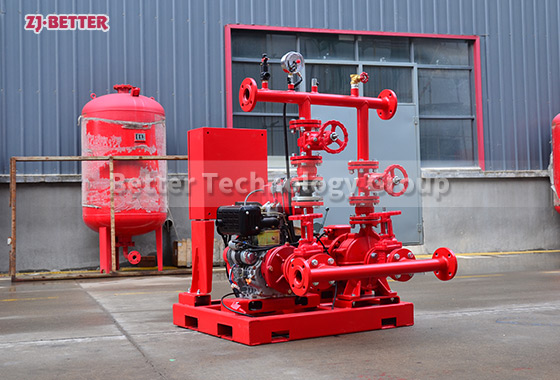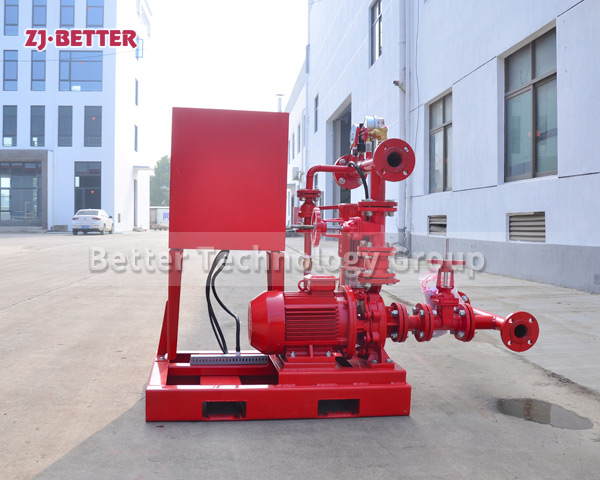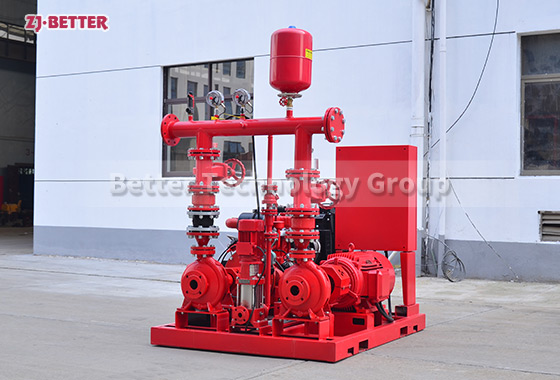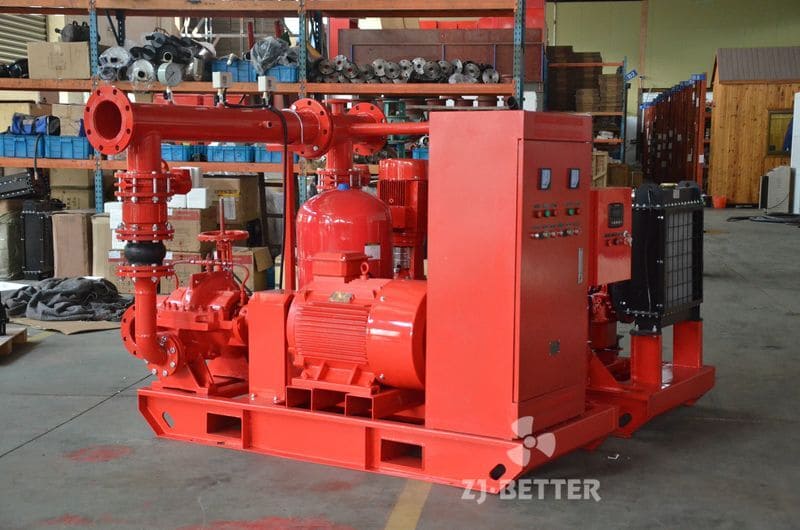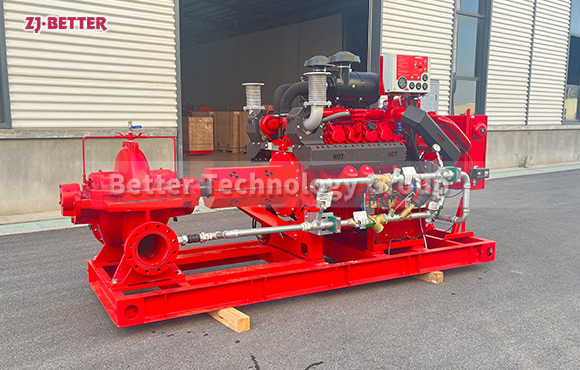As an indispensable core power source in modern firefighting systems, diesel fire pumps, with their stable, efficient, and reliable performance, provide a solid emergency water supply guarantee for various buildings, industrial facilities, and special locations. Unlike pumps that rely on electricity, diesel fire pumps, driven by an independent fuel system, are unaffected by power fluctuations or interruptions. They ensure a continuous supply of sufficient water and pressure to firefighting systems at the most critical moments, playing a vital role in firefighting. Their advantages lie not only in their power stability and responsiveness, but also in their rational overall structural design and long-term durability.
First and foremost, diesel fire pumps offer significant advantages in power performance. Diesel engines offer strong torque output and combustion efficiency, providing stable driving force even at low speeds. This is crucial for firefighting water supply systems that require rapid establishment of high head and high flow rates. In the event of a fire, the system can start up and reach rated operating conditions in a fraction of a second, ensuring rapid water delivery to fire sprinklers or fire hydrants, significantly shortening the emergency response window. Compared to electric pumps, diesel engines offer greater self-sufficiency and are particularly suitable for environments with insufficient or complete power outages, such as earthquake-stricken areas, remote mines, oil and gas storage and transportation bases, and large-scale warehouse and logistics centers.
Secondly, diesel fire pumps demonstrate superior reliability over conventional equipment. Diesel engines boast a robust and durable structure, capable of withstanding prolonged high-load operation and adapting to complex environments such as high and low temperatures, as well as dusty and humid conditions. They have a wide range of fuel sources and convenient storage options. They are typically equipped with large-capacity fuel tanks, allowing them to operate continuously for hours or even longer without external power supply, ensuring that firefighting operations are not interrupted by energy shortages. The pump body is constructed of high-strength alloys and features an anti-corrosion coating, effectively resisting wear and corrosion caused by prolonged water exposure, further extending its service life and reducing maintenance costs.
In terms of application value, diesel fire pumps offer a high degree of flexibility for diverse scenarios. Firefighting systems in high-rise buildings require extremely high water supply pressure and stability. Diesel fire pumps precisely match head and flow requirements to provide a stable water supply to every sprinkler point, preventing ineffective firefighting due to insufficient pressure. In the industrial sector, particularly in high-risk environments such as chemical plants, oil storage depots, and power stations, diesel fire pumps, with their independent power drive, ensure that firefighting systems remain operational even in the event of a complete power outage, thereby preventing further damage. In high-traffic areas such as transportation hubs and public venues like airports, subways, and convention centers, the pumps’ rapid start-up and high-flow output enable rapid control of fires in their early stages, saving valuable time for evacuation and rescue efforts.
In terms of performance, modern diesel fire pumps are often equipped with intelligent control systems that automatically monitor the status of fuel, cooling water, lubricating oil, and electrical components, enabling one-touch start and remote monitoring. The control system monitors the pump’s operating status in real time and, if an anomaly occurs, issues an alarm or automatically switches operating modes, ensuring uninterrupted water supply. This automated and intelligent nature makes diesel fire pumps not only suitable for emergency use but also crucial for routine fire system maintenance, reducing the burden of routine inspections for management personnel. Furthermore, some advanced models feature integration with building automation systems or fire control centers. When a fire alarm is triggered, the pump automatically starts and operates, truly achieving a seamless transition from fire detection to water supply.
In terms of energy conservation and environmental protection, while diesel engine combustion produces certain emissions, advances in engine technology have significantly improved combustion efficiency and exhaust gas treatment in modern diesel fire pumps. The application of high-pressure common rail injection, turbocharging, and intercooling technologies significantly improves fuel efficiency, delivering higher energy output per unit of fuel, thereby reducing fuel consumption and operating costs. Furthermore, emission control systems such as oxidation catalysts and particulate filters significantly reduce harmful emissions, meeting current environmental standards and making them suitable for use in locations with stringent environmental requirements.
From an economical perspective, while diesel fire pumps have a slightly higher initial purchase cost than electric pumps, they offer lower long-term maintenance costs, and the savings from not relying on an electricity supply are even more significant. In emergency situations, the reliable startup of a diesel pump can effectively avoid significant economic losses caused by delayed firefighting. This hidden value far outweighs the investment in the equipment itself. Therefore, considering procurement costs, maintenance expenses, and potential risk management, diesel fire pumps offer an extremely high return on investment in terms of overall economic efficiency.
In terms of safety, diesel fire pumps are typically equipped with multiple protections, such as low oil pressure alarms, high water temperature protection, and overspeed protection, ensuring that they will not stop operating due to equipment failure in any extreme circumstances. This multi-layered protection mechanism ensures that the pump unit has higher reliability and safety when responding to sudden fires. The pump body is generally designed to meet international standards and fire certifications, and undergoes rigorous testing and verification to ensure that each unit has out-of-the-box performance and durability before leaving the factory.
In summary, the advantages of diesel fire pumps in emergency water supply lie not only in their efficient power supply and independent operation capabilities, but also in their comprehensive reliability, safety, intelligence, and cost-effectiveness. Whether in high-rise buildings, industrial plants, or public facilities, diesel fire pumps can play an irreplaceable role in critical moments, becoming a vital barrier to protect life and property. With the continuous advancement of technology, diesel engine fire pumps continue to be optimized in structural design, intelligent control and environmental protection performance, and will show broader application prospects in more fields in the future.



